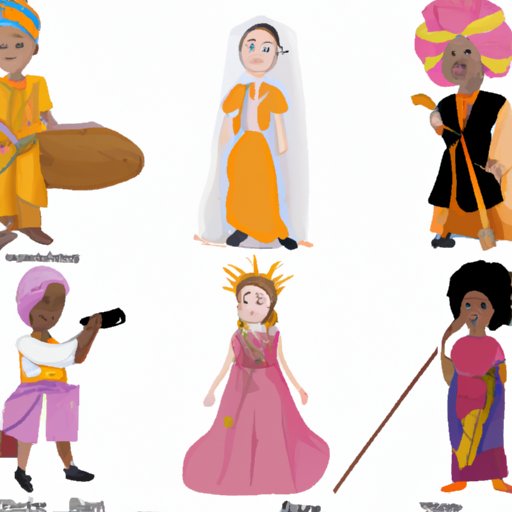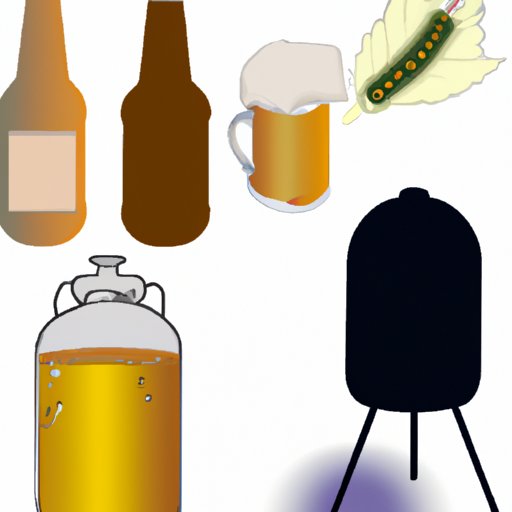Introduction
Alcohol is a substance that has been around for centuries, with its earliest production dating back to 7000 BCE. It has played an important role in many cultures throughout history and continues to be part of social life today. But why was alcohol invented in the first place? This article will explore the various reasons behind its invention, as well as the potential benefits and risks associated with its consumption.
Definition of Alcohol
Alcohol, also known as ethyl alcohol or ethanol, is a colorless liquid that is produced through the fermentation of sugars. It is found in various alcoholic beverages such as beer, wine, and spirits, which are consumed around the world. Alcohol can have both positive and negative effects on the body, depending on how much and how often it is consumed.
Overview of the Problem
The use of alcohol is widespread and has become a part of many cultures and societies. Despite its prevalence, there is still a lack of understanding about why it was originally invented. To better understand this phenomenon, it is important to look at the historical origins of alcoholic beverages, their religious and cultural significance, and the potential risks and benefits associated with their consumption.

Historical Origins of Alcoholic Beverages
The earliest evidence of alcohol production dates back to 7000 BCE in China. At this time, people were fermenting grains and fruits to produce a beverage called “ku” or “jiu”. By 3500 BCE, the Sumerians had developed brewing techniques and were producing different types of beer. The Ancient Egyptians also developed their own methods of fermentation and began producing beer, wine, and other alcoholic beverages.
Religious Significance
In many cultures, alcohol has been associated with religious ceremonies and rituals. In Ancient Greece, wine was seen as a gift from the gods and was often used in religious offerings and libations. In Judaism, wine is a symbol of joy and celebration and is traditionally served during holidays and other special occasions. In Christianity, wine is used during Communion and is seen as a representation of the blood of Christ.

Cultural Role in Different Societies
Throughout history, alcohol has been used for different purposes in different societies. In some cultures, it has been used as a form of medicine or as a way to connect with the spiritual world. In others, it has been used to celebrate victories, mark important milestones, or just as a way to relax and socialize. Regardless of the context, alcohol has long been an integral part of many cultures.
Social Impact of Alcohol Consumption
Despite its long history and cultural significance, alcohol is not without its risks and drawbacks. Excessive consumption of alcohol can lead to a variety of negative health effects, including liver damage, cancer, heart disease, and depression. It can also lead to impaired judgment, increased risk of violence and accidents, and disrupted relationships.
Benefits of Alcoholic Drinks
While excessive drinking can have serious consequences, moderate consumption of alcohol has been linked to a number of potential health benefits. Studies have shown that moderate drinkers may have a lower risk of heart disease, stroke, and certain types of cancer compared to non-drinkers. Additionally, alcohol can act as a social lubricant, helping people to relax and bond with one another.
Conclusion
Alcohol has been around for thousands of years, and its production and consumption have been part of many cultures and societies throughout history. While there is no single reason why it was invented, its invention likely had something to do with its religious and cultural significance, as well as its potential health benefits. However, it is important to remember that excessive consumption of alcohol can lead to serious negative health effects and should be avoided. For those who choose to drink, it is important to do so responsibly and in moderation.
(Note: Is this article not meeting your expectations? Do you have knowledge or insights to share? Unlock new opportunities and expand your reach by joining our authors team. Click Registration to join us and share your expertise with our readers.)
